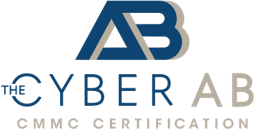Certified Cybersecurity Registered Practitioner (RP)
Certified Cybersecurity Registered Practitioner (RP)
- Certified organization to conduct Lead AuditorTraining in ISO 31000 by LMS, (Accredited from International Accreditation Service a member of International Accreditation Forum (www.iaf.nu)
- Licensed Training Partner with Cyber Accreditation Board (www.cyberab.org) an initiative of US Dept of Defense.
- Member organization of Quality Council of India (www.qcin.org)
- Licensed institute partner with CMMI Institute, Pittsburgh, USA (www.cmmiinstitute.com)
- Government eMarket Place (GeM) approved Organization (www.gem.gov.in)
- Approved trainer and examiner for GDPR from Accredia - an Italian Accreditation Body


CMMI Institute
Experiential Learning Objectives (Practice Based)
- Understanding of Cybersecurity Fundamentals
- Risk Management and Governance
- Security Architecture and Engineering
- Secure Operations and Incident Response
- Secure Communications and Network Security
- Identity and Access Management
- Security Assessment and Testing
- Professional Ethics and Communication
DAY 1
- Introduction to cybersecurity principles and concepts
- Overview of common cybersecurity threats and risks
- Understanding the CIA triad (Confidentiality, Integrity, Availability)
- Introduction to cybersecurity frameworks and standards (e.g., NIST Cybersecurity Framework, ISO 27001)
- Basics of risk management and risk assessment methodologies
- Identifying and assessing cybersecurity risks
- Introduction to legal, regulatory, and compliance requirements
- Governance frameworks and their role in cybersecurity decision-making
Cybersecurity Fundamentals & Risk Management and Governance
DAY 2
- Secure network and system design principles
- Securing operating systems and software applications
- Encryption, authentication, and access control mechanisms
- Secure coding practices and software development life cycles
- Security monitoring and threat detection techniques
- Incident response processes and procedures
- Business continuity planning and disaster recovery strategies
- Vulnerability management and patch management
Security Architecture and Engineering & Secure Operations and Incident Response
DAY 3
- Secure network protocols and technologies
- Virtual private networks (VPNs) and secure remote access
- Wireless network security and mobile device security
- Network segmentation, firewalls, and intrusion detection/prevention systems (IDS/IPS)
- Authentication, authorization, and access control mechanisms
- Introduction to identity and access management (IAM) systems
- User provisioning, role-based access control (RBAC), and privileged access management (PAM)
- Single sign-on (SSO) and federated identity management
Secure Communications and Network Security & Identity and Access Management
DAY 4
- Security assessment methodologies and tools
- Vulnerability assessment and management
- Security auditing, logging, and monitoring techniques
- Conducting security assessments and penetration testing
- Ethical and legal responsibilities in cybersecurity
- Professional conduct and maintaining confidentiality
- Effective communication of technical information to diverse audiences
- Staying updated with emerging trends, threats, and technologies
Security Assessment and Testing & Professional Ethics and Communication

